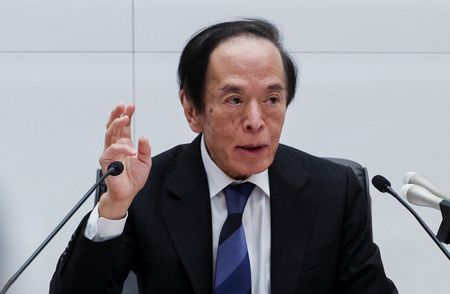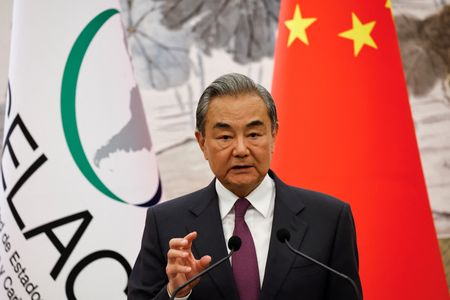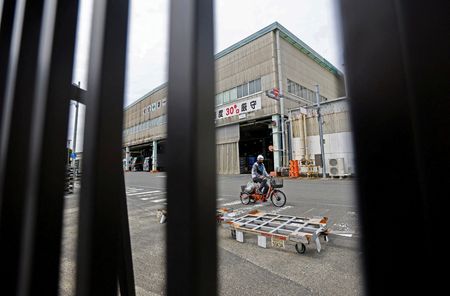By Makiko Yamazaki and Leika Kihara
TOKYO (Reuters) -Bank of Japan Governor Kazuo Ueda said on Wednesday the central bank will be vigilant to the risk large swings in super-long bond yields could affect shorter-term borrowing costs and have a bigger impact on the economy.
The remarks underscore the BOJ’s growing attention to recent volatile moves in super-long bond yields, which could affect the board’s discussions next month on the pace of bond tapering.
In Japan, short- and medium-term interest rates have a larger impact on the economy than super-long yields due to the duration of household and corporate debt, Ueda said.
“But we will bear in mind that large swings in super-long yields could affect long-term bond yields as well as those on short and medium-term bonds,” Ueda told parliament.
“We’ll carefully watch market developments and their impact on the economy,” he added.
Ueda also said uncertainties surrounding U.S. trade policy and its fallout on Japan’s economy remain high.
Yields on super-long Japanese government bonds (JGB) rose to record levels last week as part of a global sell-off in bonds reflecting growing market attention to the worsening finances of advanced economies.
Those yields slumped on Tuesday after Reuters reported that Japan’s government will consider trimming issuance of super-long bonds as policymakers focused on soothing market concerns about worsening government finances.
Markets are focusing on the BOJ’s response at its next policy meeting on June 16-17, when the board reviews an existing bond taper plan running through March, and comes up with a plan for next fiscal year and beyond.
Having exited a bond yield control policy last year, the BOJ is wary of ramping up bond buying or making big tweaks to its existing taper plan.
Board member Asahi Noguchi, once known as an advocate of massive asset buying, said last week that he saw no need for the BOJ to intervene in the bond market to tame bond yield rises.
But the market rout could affect the BOJ board’s debate on the future pace of bond taper, some analysts say.
Many bond market participants surveyed by the BOJ appeared to have called for maintaining or slightly slowing the pace of tapering from fiscal 2026, a summary of the survey released by the central bank showed.
(Reporting by Makiko Yamazaki and Leika Kihara; additional reporting by Takahiko Wada; Editing by Christian Schmollinger and Sam Holmes)










